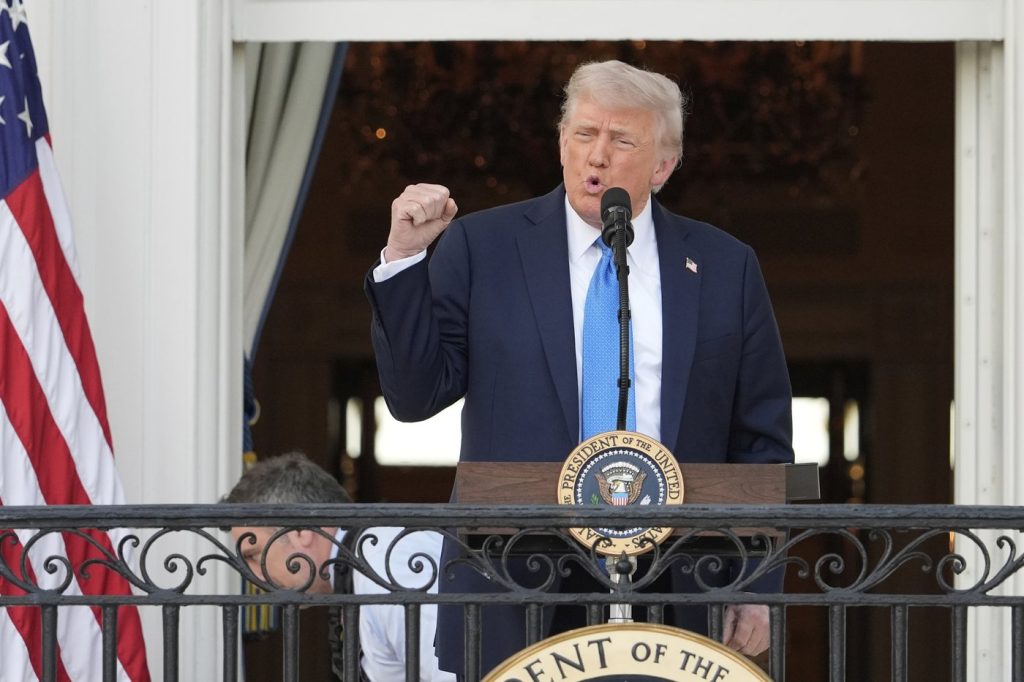WASHINGTON (AP) – President Donald Trump has taken a significant step to restrict nearly all foreign students from entering the United States to attend Harvard University. This move is seen as part of his broader campaign to diminish the influence of the prestigious institution, which relies heavily on an international student body that constitutes about 25% of its enrollment.
In an executive order signed on Wednesday, Trump articulated concerns over national security, claiming that Harvard's actions have made it an unsuitable destination for foreign scholars. He stated in the order, "I have determined that the entry of the class of foreign nationals described above is detrimental to the interests of the United States." The order signifies an escalation in the long-standing conflict between Trump’s administration and Harvard, America’s oldest university.
This latest measure follows a recent federal court ruling in Boston that blocked the Department of Homeland Security from preventing international students at Harvard from attending. However, Trump's executive order references different legal grounds. It invokes a broad federal law that permits the president to deny entry to foreigners whose presence would be detrimental to the U.S. interests. This legal authority has also been utilized in recent travel bans affecting citizens from various countries, citing national security risks, along with other laws addressing associations with terrorist organizations.
The tension stems from Harvard's refusal to comply with numerous demands imposed by the federal government, particularly requests for records related to alleged misconduct by foreign students. While Harvard asserts that it has cooperated with the requests, officials from the Trump administration argue that the university's response was inadequate.
The friction has intensified over recent months, as the Trump administration has criticized Harvard for its perceived liberal ideology and potential tolerance of anti-Jewish harassment. Harvard has countered that such demands would infringe on its autonomy and threaten the academic freedom enjoyed by U.S. universities.
The administration’s tactics have included the suspension of more than $2.6 billion in research grants and movements to terminate all federal contracts with the university. Trump’s recent order specifically targets the approximately 7,000 international students at Harvard, who are vital to certain graduate programs that rely on this demographic for half of their enrollment.
Attorney General Pam Bondi declared on social media, "Admission to the United States to study at an 'elite' American university is a privilege, not a right," highlighting the administration's stance on restricting new foreign student admissions based on concerns for national security. Conversely, Rep. Pramila Jayapal, D-Wash., condemned the move as a "thinly veiled revenge ploy" against Harvard amid Trump’s personal disputes with the institution, dismissing the national security rationale altogether.
The executive order applies to foreign students seeking to enter the U.S. for Harvard after the date of the order, but it does allow for exceptions where officials determine that a student’s admission would "benefit the national interest." According to the order, Harvard is accused of inadequately reporting disciplinary measures concerning foreign students, raising concerns about the institution's compliance with federal laws regarding foreign nationals.
Furthermore, Secretary of State Marco Rubio is tasked with determining whether existing visas for foreign students currently attending Harvard should be revoked. The order is set to remain in effect for six months, with a review to assess its renewal within 90 days.
In a recent State Department communication to U.S. embassies and consulates, it was noted that federal officials would initiate reviews of visa applicants' social media accounts for any indications of antisemitism prior to granting access for study or work at Harvard. Harvard officials, in response, have reported a climate of "profound fear, concern, and confusion" amongst international students, with many contemplating transferring out of the university due to impending restrictions.
On a broader scale, Trump's executive actions reflect ongoing tensions surrounding higher education and immigration in the current political landscape, as the administration continues to intertwine national security issues with educational policy.











